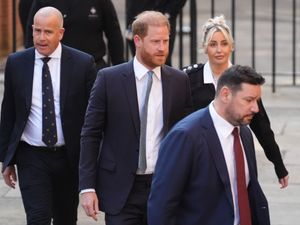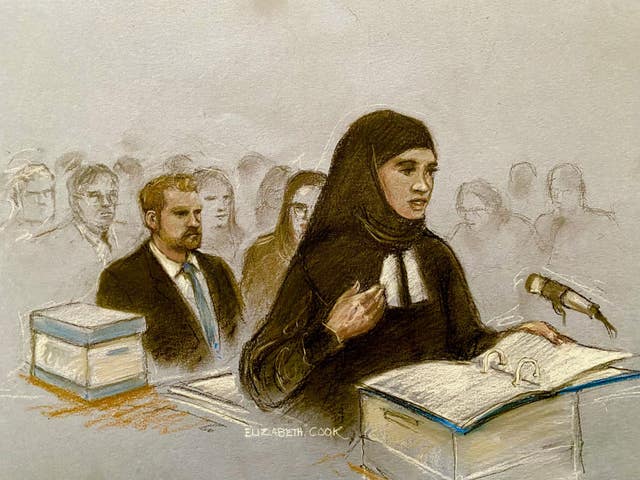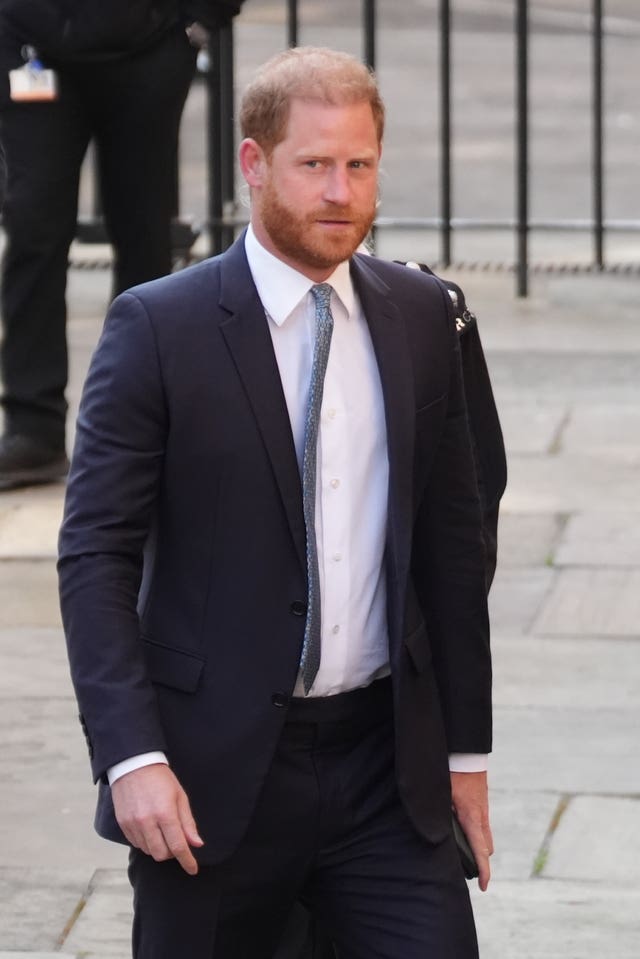Harry and Meghan ‘felt forced to step back’ from royal family, court told
Harry appeared at the Royal Courts of Justice on Tuesday.

The Duke and Duchess of Sussex “felt forced to step back” from their roles as senior working royals as they felt they “were not being protected by the institution”, the Court of Appeal has been told.
Harry and his wife Meghan quit as senior working royals in January 2020 but “wished to continue their duties in support of the late Queen as privately funded members of the royal family”, the duke’s barristers told a hearing on Tuesday.
The duke was at the Royal Courts of Justice in London for the latest stage of a legal battle with the Home Office over the level of taxpayer-funded personal security he should receive when visiting the UK.

In February 2020, the Executive Committee for the Protection of Royalty and Public Figures (Ravec) decided he should receive a different degree of protection when in the country, and he is appealing against a High Court ruling dismissing his case against the Home Office over the decision last year.
In written submissions, Shaheed Fatima KC, for the duke, said: “On 8 January 2020, (the duke) and his wife felt forced to step back from the role of full time official working members of the royal family as they considered they were not being protected by the institution, but they wished to continue their duties in support of the late Queen as privately funded members of the royal family.”
In her written submissions, parts of which were redacted for confidentiality reasons, Ms Fatima said Ravec ruled in 2020 that “there is no basis for publicly funded security support for the duke and duchess within Great Britain”.
After the decision, al Qaida called for Harry “to be murdered”, and his security team was informed that the terrorist group had published a document which said his “assassination would please the Muslim community”, Ms Fatima said.

Harry and Meghan were also said to have been involved in a “dangerous car pursuit with paparazzi” in New York in May 2023, involving “reckless disregard of vehicle and traffic laws”.
Ms Fatima said the duke’s security “does not appear to have been discussed at any formal Ravec meeting”, adding there were “no official notes or detailed minutes recording the approach to be taken” to his protection.
The court was told that a meeting took place at Buckingham Palace on January 27 2020, but in February 2020, Sir Richard Mottram – the then-chairman of Ravec – said a risk management board (RMB) assessment would not be carried out for the duke.
In court on Tuesday, Ms Fatima said that by failing to undertake an RMB assessment, Ravec “did not apply its own terms of reference” to its decision-making process, and came up with a “different and so-called ‘bespoke process’” for Harry.
She continued in written submissions that the decision was made “despite the existence of the other categories that only Ravec knew of at the time and which, as (the duke) now knows, do provide a basis for protective security”.
This meant the duke was “not in a position to make any informed representations to Ravec”.
The Home Office, which is legally responsible for Ravec’s decisions, is opposing the appeal.
Its barrister Sir James Eadie KC said in written submissions that the appeal “involves a continued failure to see the wood for the trees”.
He said: “Whether by reference to rationality generally, or by reference to the absence of an RMB analysis, (the duke) cannot show that the judge was wrong to reject his claim that his circumstances were so exceptional as to justify not just the specific bespoke process focused on him, but to require general inclusion within the Ravec cohort.”
The hearing before Sir Geoffrey Vos, Lord Justice Bean and Lord Justice Edis is due to conclude on Wednesday with a decision expected in writing at a later date.





